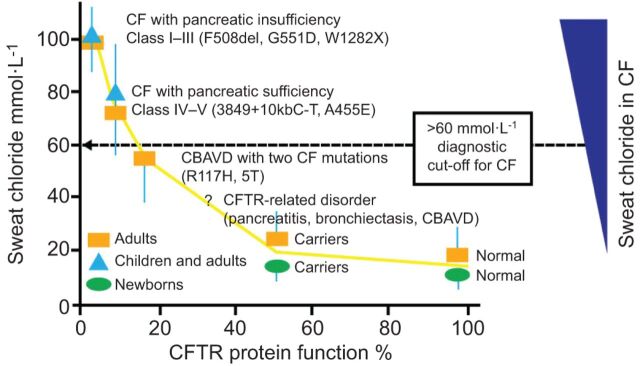Figure 2.
Correlation of sweat chloride levels with cystic fibrosis transmembrane conductance regulator (CFTR) protein expression and function. In cystic fibrosis (CF) patients with Class I–III CFTR mutations, absent or minimal CFTR function results in exocrine pancreatic insufficiency and highly elevated levels of sweat chloride concentration. Residual CFTR function in CF patients with Class IV–V CFTR mutations is associated with exocrine pancreatic sufficiency and sweat chloride levels above or below the diagnostic cut-off of 60 mmol·L−1. CFTR-related disorders are non-CF conditions with some CFTR dysfunction, usually presenting with intermediate or normal sweat chloride values and CFTR mutations that are known to affect mRNA production, although to a lesser degree than CF-causing CFTR mutations [23]. CBAVD: congenital bilateral absence of vas deferens. Modified from [22] with permission from the publisher.

